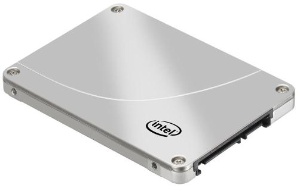

Intel is working on a fix to counter problems with some of its 320 Series solid-state drives (SSDs).
The chip giant has been investigating the “Bad Context 13x Error”, a bug that first noted last month in the Intel community post as an “SSD Power Loss.”
Intel summarised the error by explaining in certain circumstances, after an unexpected power loss, a small percentage of SSDs may experience this error on the next attempt to boot the system. In this situation, the system’s basic input/output system (BIOS) reports an SSD as an 8MB capacity drive.
Intel said it has reproduced the Bad Context 13x Error using “strenuous” testing methods, and this Bad Context 13x Error can be addressed via a firmware update, which Intel is in the process of validating.
A future update will define the schedule to deliver the firmware fix, the company said in a statement posted on the Intel Support Community web page. The Intel SSD 320 Series continues to be shipped and is available for purchase. “If you experience this error with your Intel SSD, please contact your Intel representative or Intel customer support,” the statement read. “Intel takes these issues seriously. Please watch for further updates on the site.”
The company advised users with Intel SSD 320 series drives who are concerned but currently unaffected by the error to back up their data regularly, and when shutting down their systems, follow the system’s standard shutdown process. Intel also suggested users should minimise unplugging the SSD while the system is powered.
Based on its 25nm NAND flash memory, the Intel SSD 320 replaces and builds on its X25-M Serial ATA SSD. The series offers 40-, 80-, 120-, 160GB plus higher-capacity 300- and 600GB options with enhanced security features for desktop/notebook PCs or server data centre storage. In this rendition, Intel used spare area to deploy added redundancies that are designed to help keep user data protected, even in the event of a power loss. It also includes 128-bit Advanced Encryption Standard capabilities on every drive, to help protect personal data in the event of theft or loss.
“Solid-state drives continue to be one of the hottest trends in computing,” said Bernard Luthi, vice president of marketing, web management and customer service at e-retailer Newegg.com. “Intel remains a top brand because of its consistent performance and extremely low return rate. We are sure customers will welcome the new higher-capacity drives, and now is a great ti
Earlier this month, the company announced it signed a definitive agreement to acquire Fulcrum Microsystems, a privately held fabless semiconductor company that designs Ethernet switch silicon for data centre network providers. Fulcrum Microsystems designs integrated, standards-based 10 and 40 GbE (Gigabit Ethernet) switch silicon that has low latency and workload-balancing capabilities while helping provide superior network speeds.
Intel said as demand for data continues to increase, there is a growing need for high-performance, low-latency network switches to support evolving cloud architectures and the growth of converged networks in the enterprise, and said the acquisition would fulfil an important component in Intel’s strategy to deliver comprehensive data centre building blocks, from server processors and technologies to storage and networking.
American space agency prepares for testing of Boeing's Starliner, to ensure it has two space…
As UK and Europe develop closer military ties, European Commission says it will invest €1.3…
Zuckerberg seeks to revive Facebook's original spirit, as Meta launches Facebook Friends tab, so users…
Notable development for Meta, after appeal against 2021 WhatsApp privacy fine is backed by advisor…
First sign of shake-up under new CEO Lip-Bu Tan? Three Intel board members confirm they…
Trump's nominee for SEC Chairman, Paul Atkins, has pledged a “rational, coherent, and principled approach”…